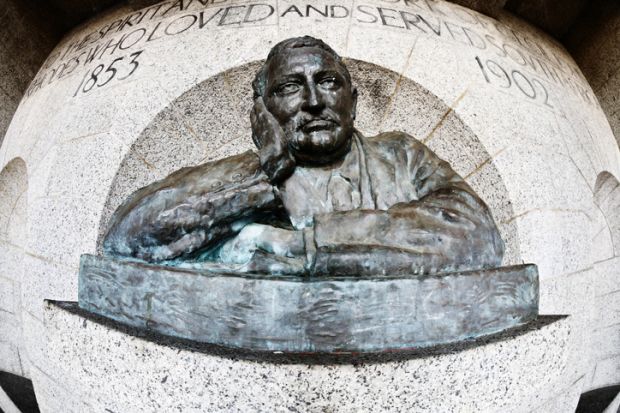点击阅读英文原文
在明尼阿波利斯的乔治•弗洛伊德死于一名警察膝下这一惊人案件之后,“大学课程去殖民化”的呼声比以往任何时候都更加响亮。但这到底需要做什么呢?
根据基尔大学(Keele University)在“去殖民化课程宣言”所提出的完善后的定义之一,它意味着“为所有大学成员创造空间和资源进行对话,探讨如何想象及设计包含所有文化和知识系统的课程,并思考所学的内容以及它如何塑造世界”。
从表面上看,这似乎是值得的,也没有争议。但是这次倡议存在几个问题。首先,它的终点不明朗——或者至少是有问题的。例如,应该由谁来决定哪些课程最需要“去殖民化”?应该采用什么标准?如果需要改变,具体应该做些什么?
承认这些挑战并不是要否认种族主义和帝国主义的残留仍然存在于一些西方大学的课程中。但是其影响的真实程度是未知的。它也会因学科和机构的不同而有所不同。
技术性科目可能根本不应受到谴责,尽管它们当然可能以种族主义和其他不合理的方式得以应用。例如,想想优生主义运动和纳粹医生在大屠杀期间对医学的滥用。
艺术、人文和社会科学——在模块、课程和大学之间存在显著差异——更有可能需要仔细审视。例如,在任何可信的英国历史课程中都不能忽视奴隶制和帝制相关内容。
然而,这并不意味着这些科目应该在任何地方都用完全相同的方式来教授、学习和研究。强制包含或排除某些文本或方法,也会严重违背学术自由和公开学术辩论的价值观。
但这是可能发生的。一些去殖民化运动人士还有另外一些具有高度规定性但有问题的要求。例如,如何纠正“认识论危机”,即抹杀非西方世界观的罪行?据推测,没有人会设想将传统的非洲、中国和印度医学与西医模式相提并论。但谁知道呢?
为确保被殖民主义边缘化的学者能够获得配额而对阅读书目进行审查的提议,也与最基本的纳入标准不一致:应当依据任何特定贡献的价值,而不是贡献者的身份。
西方大学的另一个当代趋势加剧了这些困难:对“安全空间”的需求。那些打着这个旗号的人试图保护少数人的信仰在课堂上不受挑战,无论这种行为如何恰当或恭敬。为了追求“进步”议程(俗称“取消文化”),目前人们试图压制合法但不受欢迎的观点,这种做法也不利于公开辩论。表达有争议观点的学者和作家越来越多地受到各种方式的攻击,包括上网请愿要求谴责或解雇他们,目的是实施恐吓令其沉默。
除非妥善管理,否则这三种趋势的综合效应可能只会让辩论只针对那些活动者们同意的观点,同时排除那些他们不同意的观点。
然而,去殖民化运动最严重的缺陷是,它不会轻易接纳那些因殖民以外的因素而处于不利地位和边缘化的群体。如果我们需要一场运动来去殖民化大学课程,难道我们不需要另外采取行动来“去男性化”、“去异性恋化”和“无产阶级化”吗?
在当前的环境下,大学感到有必要支持去殖民化运动是可以理解的,最起码为了避免已经开始的点名羞辱。
但是,与其简单地支持那些最直言不讳的学生和教师的怨言,还不如采取更彻底、更有证据支持的措施,来确定各种课程排斥情况的性质和范围。
要更好地促进多样化、宽容、包容和对人与思想的尊重,不是通过“课程去殖民化”,而是通过更广泛地关注特定机构的特定课程。这将涉及令人不安的讨论,不仅是关于种族主义和帝国主义的遗留,还有其他缘由的不公正。
然而,最重要的是,自由和公开辩论的权利必须得到尊重和保护。对各种明显和暗含的排外行为进行坦率而公开的反思,是有效解决这些问题的最佳途径。
史蒂文·格里尔(Steven Greer)系布里斯托大学(University of Bristol)法律学院的人权教授。
本文由陈露为泰晤士高等教育翻译。




